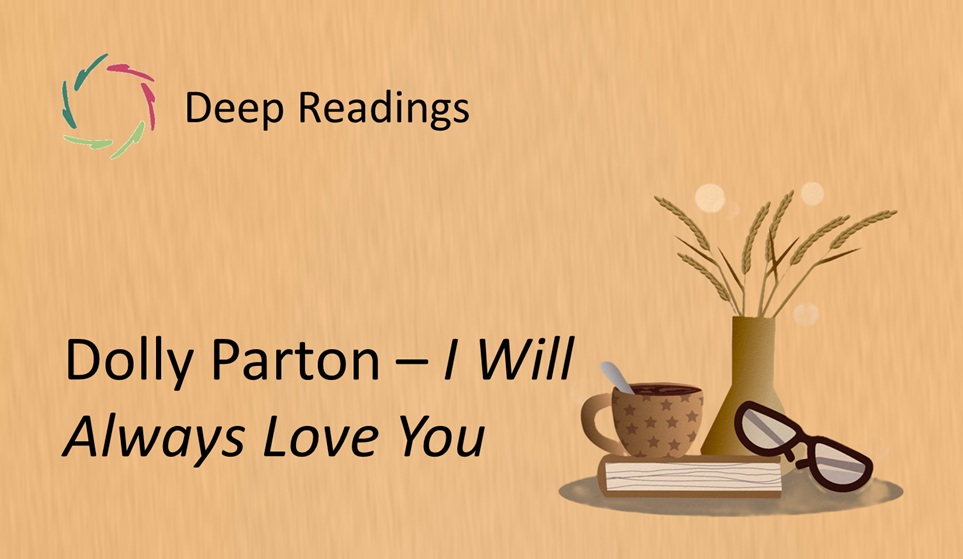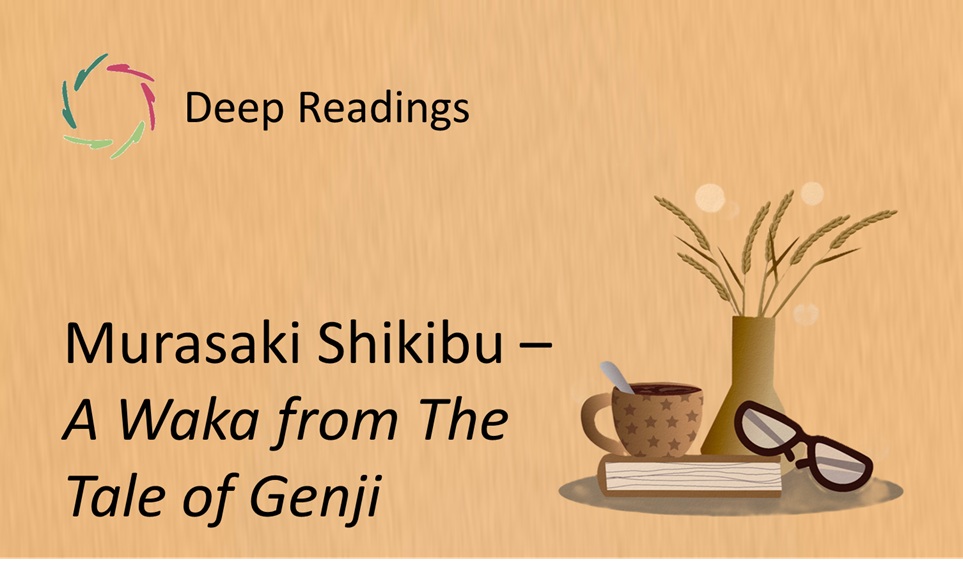Deep Reading: Dolly Parton – I Will Always Love You (1974)

The Fragment
If I should stay, I would only be in your way. So I’ll go, but I know I’ll think of you each step of the way.
(Short excerpt due to copyright; full version on Genius)
See Dolly Parton sing this on YouTube.
Contextual Glimpse
Dolly Parton wrote I Will Always Love You in 1973 as a farewell to her mentor and duet partner Porter Wagoner, when she decided to pursue her own career. Recorded in 1974, the song became one of her signature pieces, later made world‑famous through Whitney Houston’s version in 1992. Yet Dolly’s original remains quiet, tender, and deeply personal — an intimate voice of love at the threshold of parting.
The song is remarkable for its tone. Instead of bitterness, it carries blessing. The speaker chooses departure, but does so with tenderness, gratitude, and enduring love. This inversion — farewell without anger — is what makes the song universal: it transforms loss into a gift.
Resonance
The fragment, and the song as a whole, resonate with the paradox of parting. To love someone deeply, and yet to leave, is among life’s most painful contradictions. Dolly gives this contradiction a voice of grace. She does not deny sorrow, but she frames it in love, creating a melody that feels like both wound and balm.
This resonates because we all know the tension between closeness and independence, love and freedom. To walk away can feel like betrayal, yet it may also be the highest form of care — freeing both selves to grow. The song shows that farewell need not erase love: it can deepen it, turning absence into a quiet continuation.
Why this may also be about you
Perhaps you, too, have faced moments when love demanded letting go. The song reminds you that departure can carry tenderness, not only loss. Farewell does not mean erasure; it can mean a different kind of presence.
When you remember someone with love, even after parting, you discover that love’s truest form is not possession but blessing. That truth may already live quietly in your own heart.
Lisa’s inspired, original idea about this fragment
Perhaps the “I will always love you” is not only addressed to another, but also to the self. To part from a chapter of life, or from an identity that no longer fits, is also to say: I release you, yet I will always honor you. This transforms the song into a hymn of self‑compassion.
In this way, Dolly’s farewell becomes universal. Every ending in life — leaving a home, a friendship, a phase — can be accompanied by this refrain. To love what we leave behind is to carry it forward in gratitude, not regret.
Echoes
The song has echoed far beyond its origin. Dolly’s recording became a classic in country music, and Whitney Houston’s later version turned it into one of the most iconic ballads of the 20th century. It has been sung at weddings, funerals, and farewells across the world — moments when people needed words for love entwined with loss.
Its enduring echo lies in its paradoxical gentleness. Unlike most love songs of parting, it carries no anger, only blessing. That is why people keep returning to it: it gives voice to the kind of farewell we all long to give and receive.
Inner Invitation
Close your eyes and bring to mind someone or something you have parted from. Let Dolly’s refrain sound within you: I will always love you. Notice how it feels to place love inside a goodbye, to let departure carry tenderness.
Now imagine saying these words also to a part of yourself — a younger self, a former self, a chapter of life now closed. Let the words wrap that memory in warmth, transforming loss into gratitude.
Closing Note
Dolly Parton shows us that farewell can be gentle: to leave without bitterness, and to let love remain as blessing.
Lisa’s final take
To let go is sometimes the purest embrace.
Keywords
farewell, love, tenderness, letting go, Dolly Parton, parting, blessing, memory, release, paradox, presence


